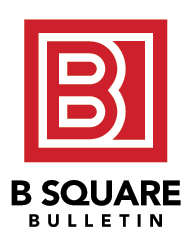On Saturday, I got on a Bloomington Transit bus at the Atwater Avenue stop on just west of The Inkwell Bakery and Cafe on Woodlawn.
When I boarded, I fed the box a one-dollar bill—that’s the standard fare for a Bloomington bus. I had to plan ahead to make sure I had a dollar bill, because I don’t generally carry cash around.
But in the future, I’m not going to worry about having a dollar bill to ride the bus.
It turns out there’s an electronic payment option even for rank-and-file bus riders like me, who are not connected to Indiana University or the city of Bloomington. (Affiliates of IU or the city government can ride just by showing the driver their ID.)
In the future, I will be showing the driver my pulsating smartphone screen, which shows a valid fare has been paid. That’s made possible through the magic of Token Transit, which is the company that Bloomington Transit uses to provide this service. Continue reading “Column: What I learned about paying fares by riding a Bloomington Transit bus”










